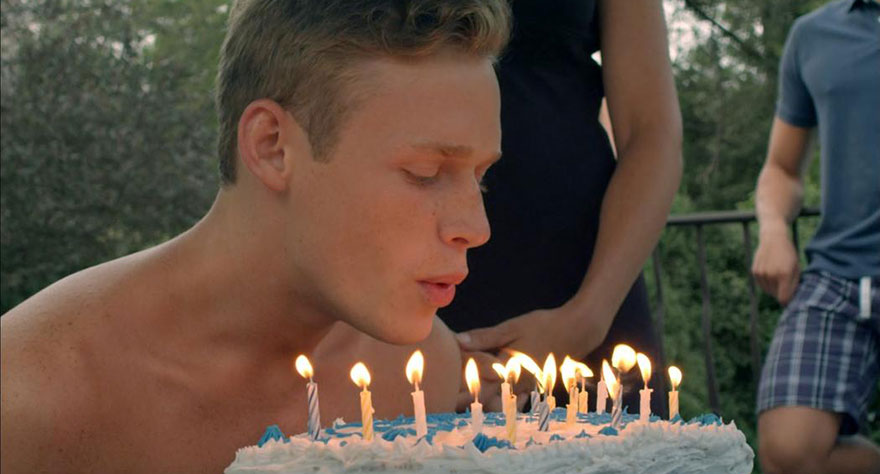
Secrets and lies rise to the surface in this sensitive drama about the struggle between devotion and desire.

Secrets and lies rise to the surface in this sensitive drama about the struggle between devotion and desire.
For Henry Gamble (Cole Doman), his 17th birthday is a big turning point. He’s first seen lying in bed the night before his birthday with best friend Gabe (Joe Keery), talking about sex before the two of them mutually masturbate over Gabe’s fantasy involving a female classmate. It’s plain to see from Henry’s behaviour that he has a crush on Gabe, but before Henry Gamble’s Birthday Party becomes a story of a secret crush, writer/director Stephen Cone shows Henry praying before he goes to sleep, establishing both the film’s prevailing theme of religion and an ambition to deal with ideas that go well beyond the intimacy of the opening scene.
Indeed, Henry isn’t the only person dealing with internal conflicts at his party, although his own situation is complicated given his father Bob (the undervalued and always reliable Pat Healy) is a pastor. As the guests arrive one by one, Cone establishes his ensemble cast while gradually revealing information about the various dramas lurking underneath the surface. Henry’s mom Kat (Elizabeth Laidlaw) can barely hide that her marriage is going through hard times; sister Autumn (Nina Ganet) is visiting from college and trying to get over a breakup; the death of a prevalent member of the congregation hangs over the proceedings; and Henry tries to avoid his gay classmate Logan (Daniel Kyri), who has a crush on Henry and doesn’t hide it around him.
That’s only a small chunk of the many subplots swirling around Henry’s home, and as the day goes on many of the various crises going on between friends and family come to a head. Taking place over one day at the house, Cone’s skillful balancing of the large cast and multiple narrative strands is so impressive it’s easy to forget that it’s all an elaborate juggling act. Part of that has to do with the ensemble, a combination of amateurs and professionals that work together naturally (it’s worth singling out Healy and Laidlaw as Henry’s parents, who are so good it feels like there could be a film just about them), but it’s largely due to the thematic tissue connecting everyone’s stories. Almost everyone faces a similar dilemma involving their faith, finding themselves face to face with a desire that goes against what they’ve been taught. And as much as their community promotes a friendliness and openness with each other, the fact that their feelings and/or actions would be categorized as sinful means their issues stay buried.
Cone’s ability to extend his story beyond Henry’s own struggle with his queer identity is what helps give Henry Gamble’s Birthday Party an empathetic quality that’s rarely seen in US indies. Whether it’s Kat trying to fight against her feelings of leaving her marriage or someone wanting to break away from their overbearing mother, Cone approaches each character in a way that distinguishes them and respects their own inner conflicts. Granted, this isn’t the case for every character, and when Cone’s characterizations turn broad—like one woman who spends her time at the party ranting about pornography, or a minor character whose story takes a grisly turn at the climax—there’s a brief clash with the naturalistic mood. But the fact that there are no heroes or villains in a film dealing with homosexuality and Christianity is a rare and welcome sight, one that highlights the complexity of everyone’s situations without casting judgment on whatever they believe in public or private. It’s a film that’s not without its issues, but it displays a sensitivity that more films (indie and otherwise) should try to emulate.